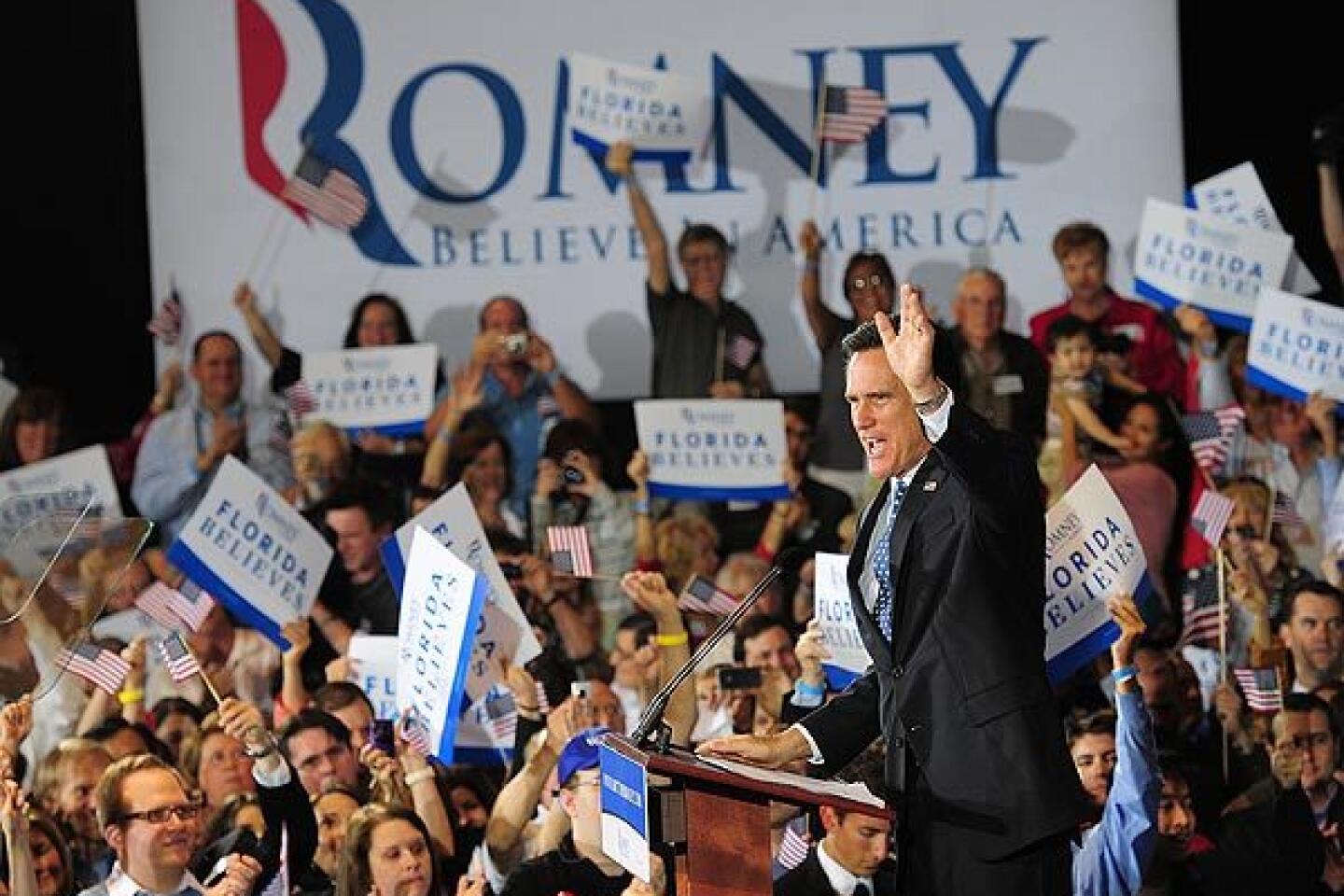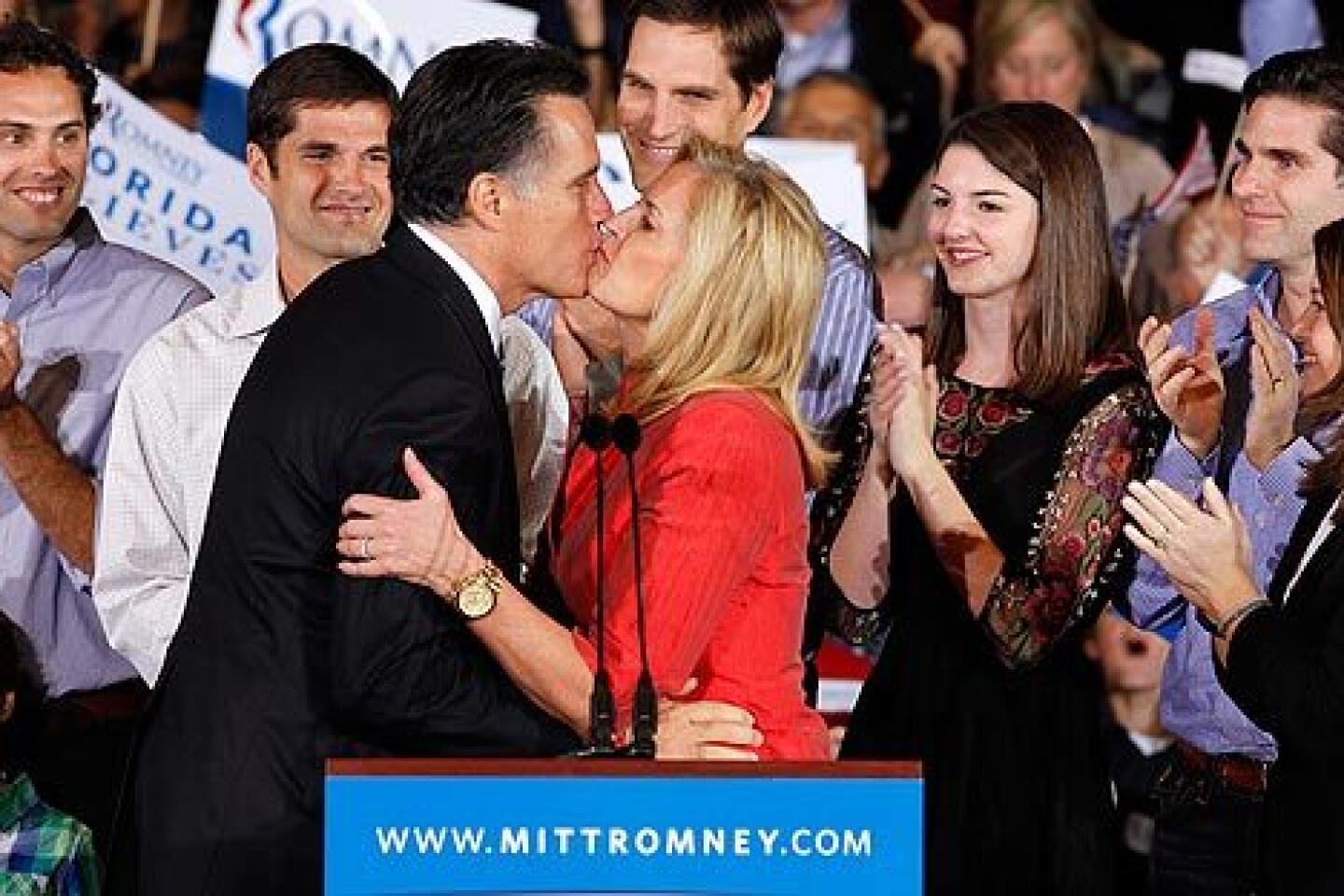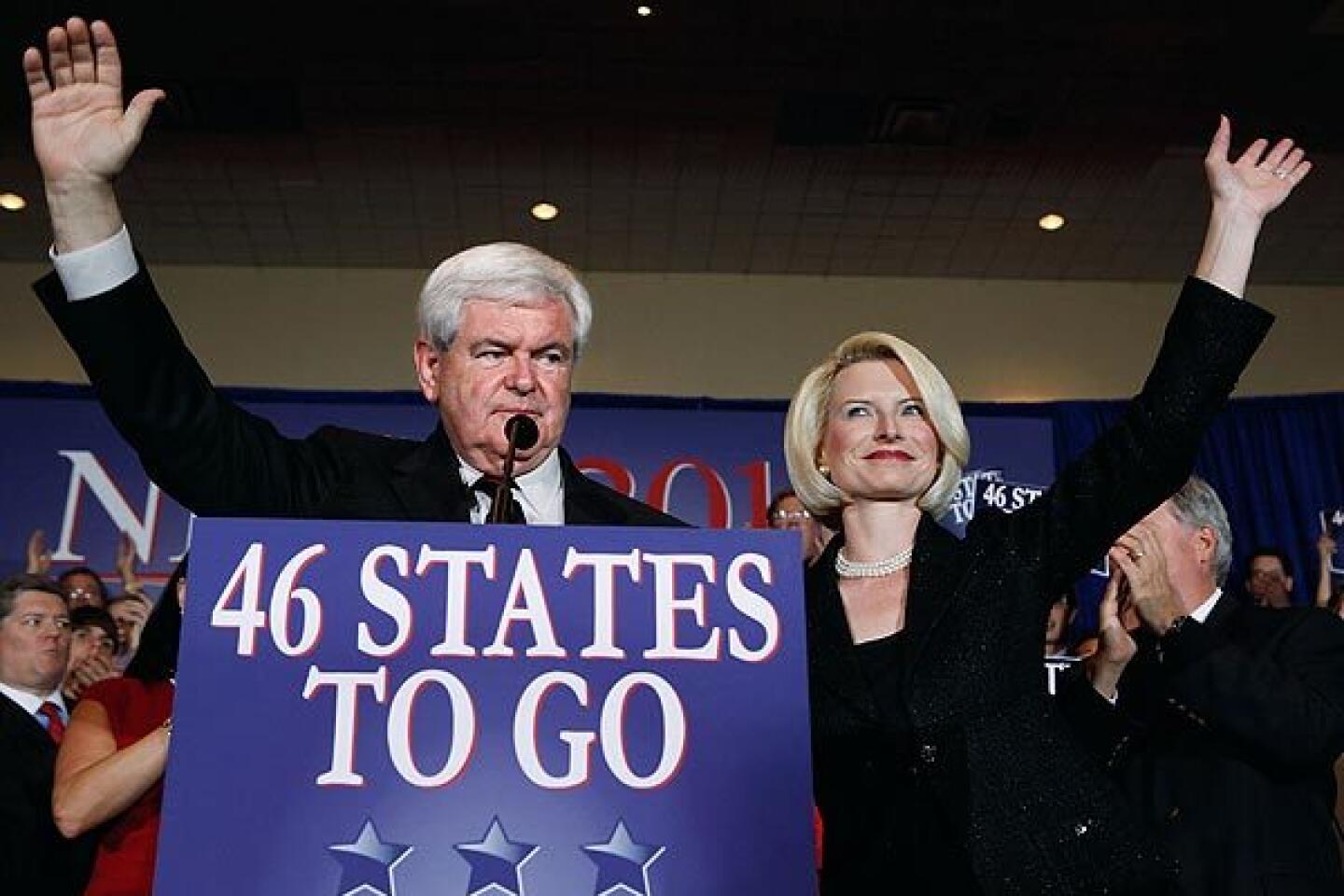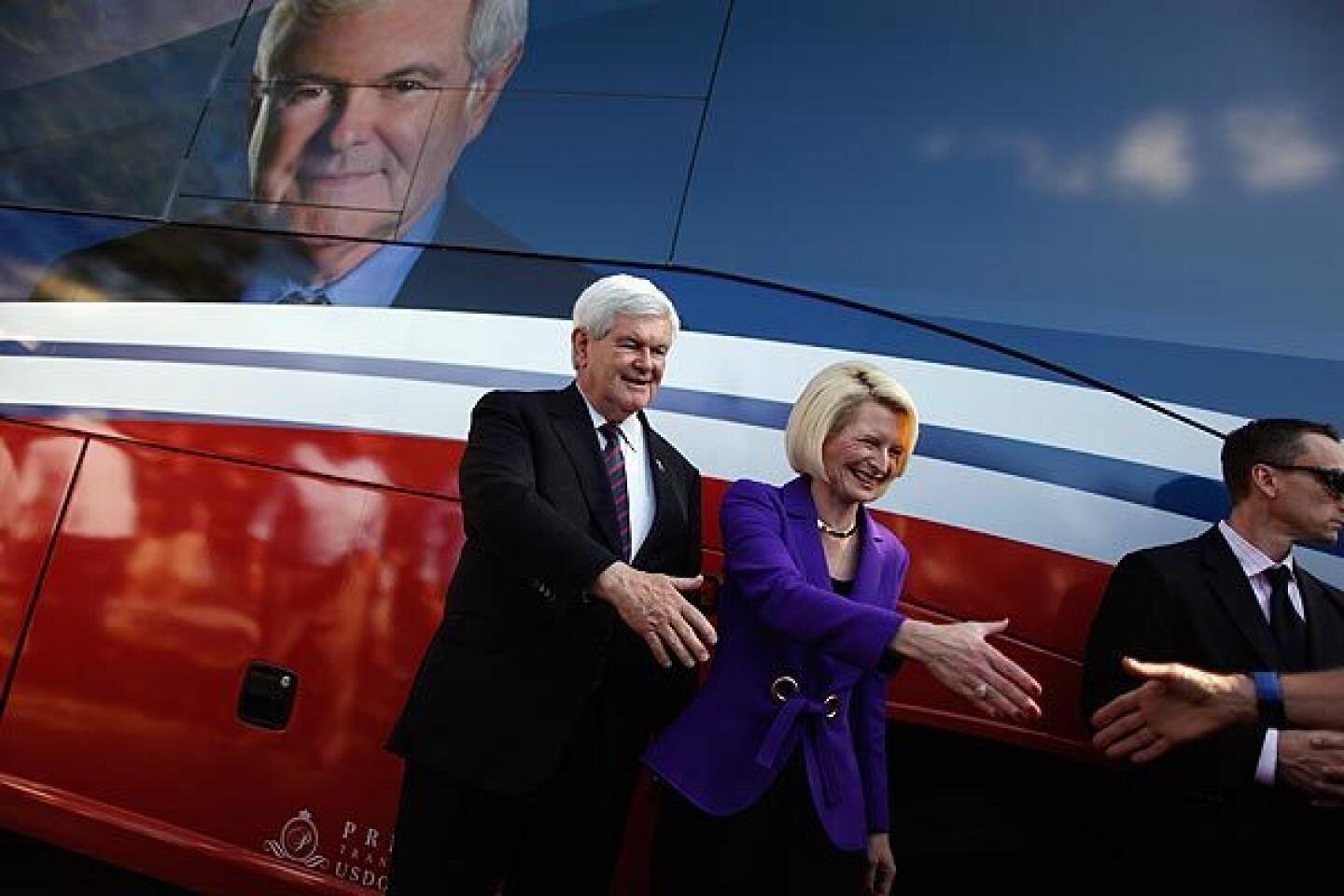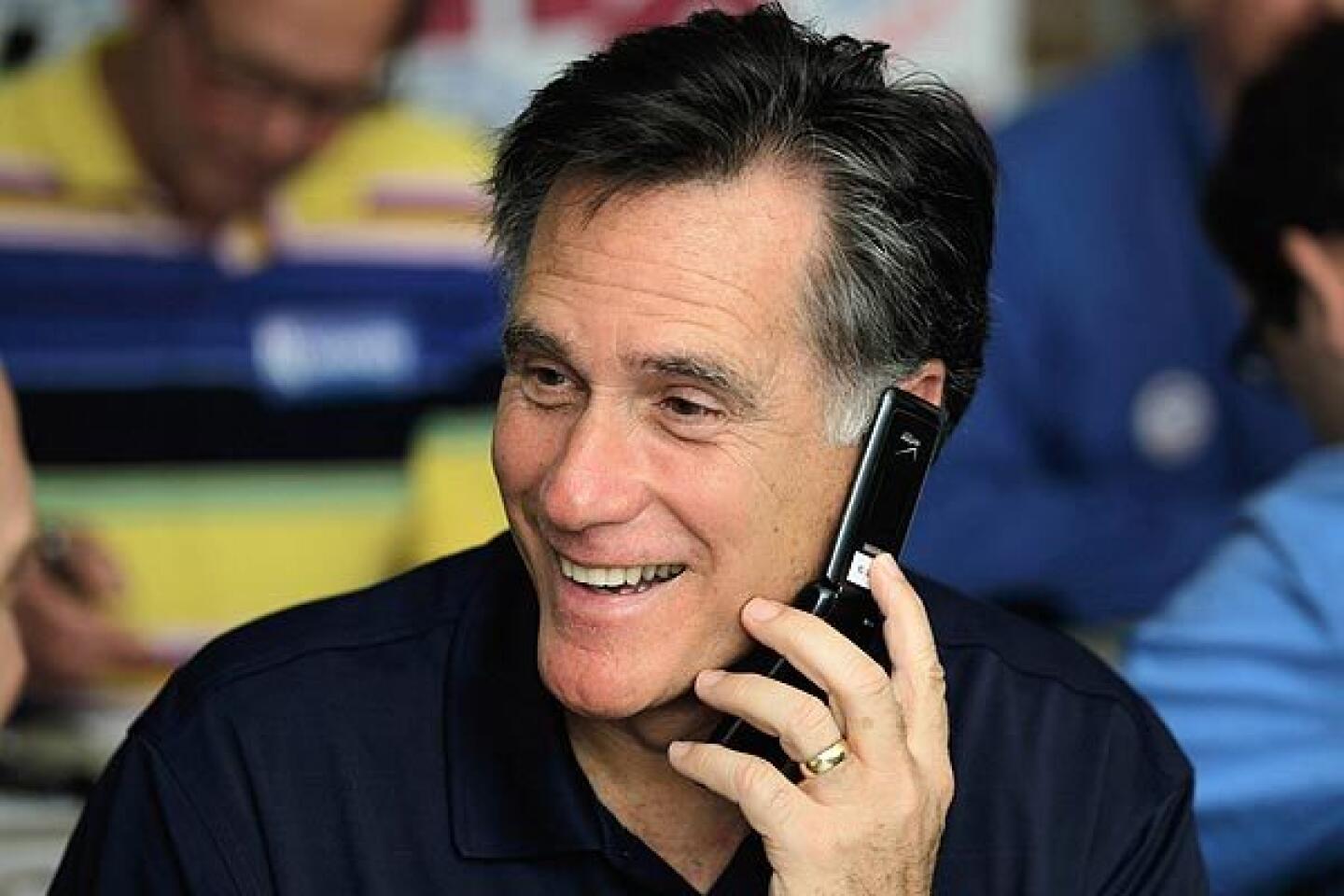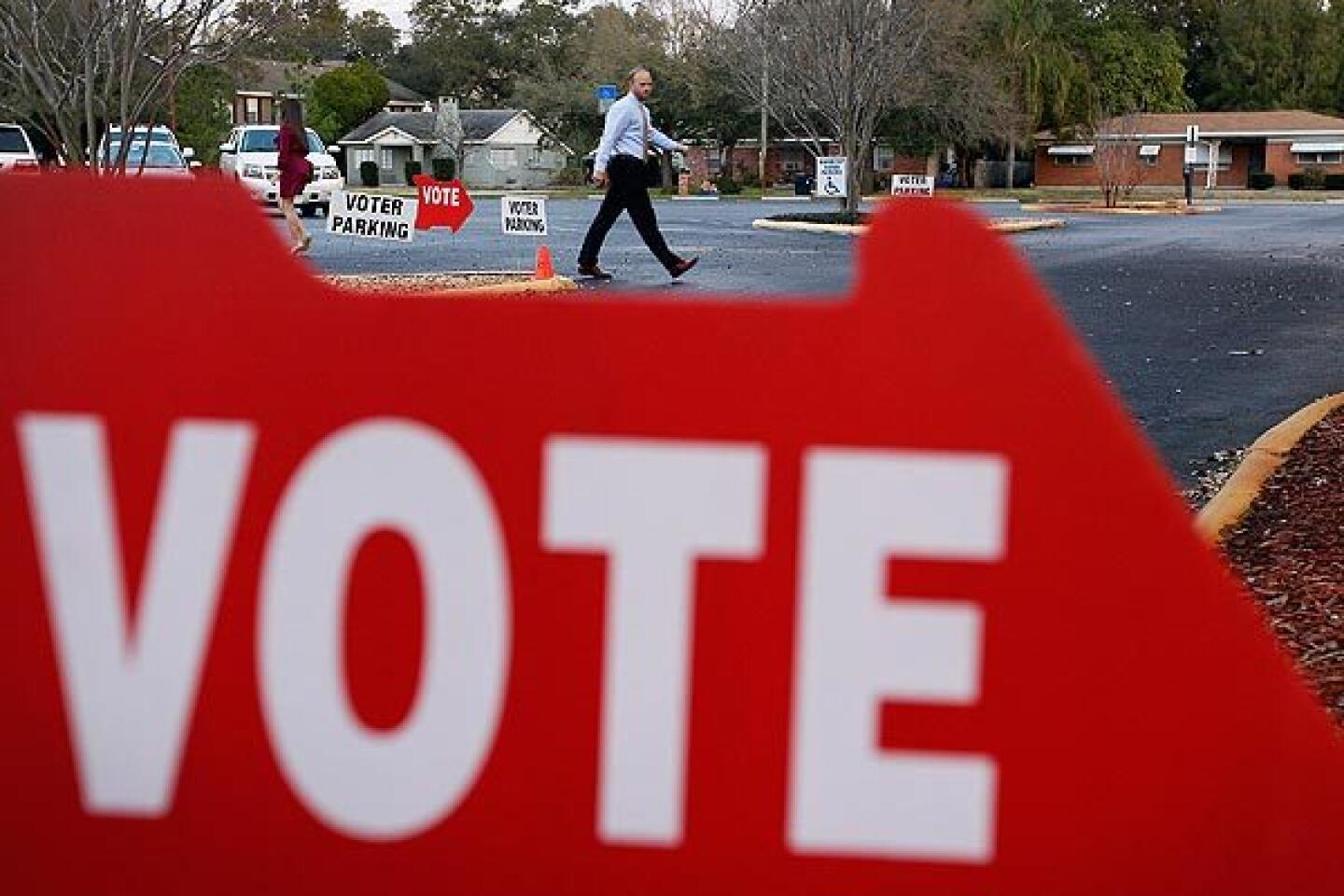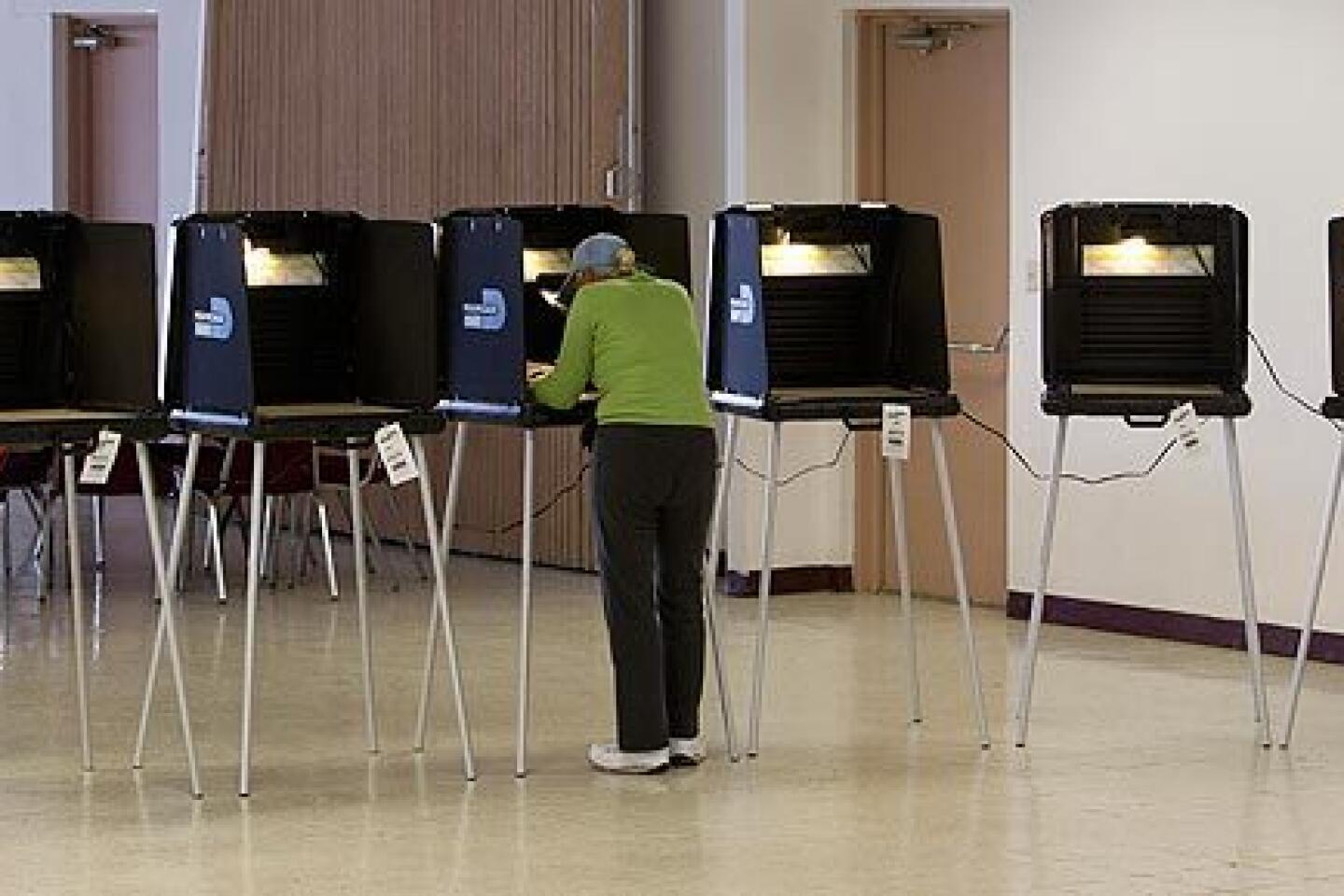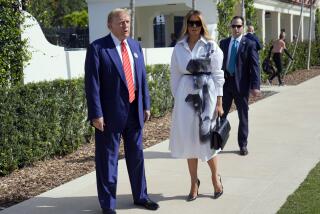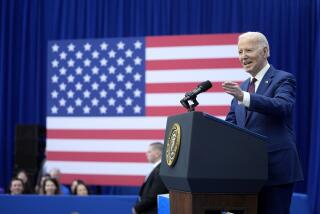Romney’s triumph in Florida primary fails to deter GOP rivals
Mitt Romney may have won a blowout victory in Florida’s presidential primary, but Newt Gingrich is not about to concede defeat.
Sounding as though he had already wrapped up the nomination, Romney commended Gingrich and other rivals Tuesday night for a hard-fought effort and minimized any lasting damage to the party or his candidacy.
“A competitive primary does not divide us, it prepares us and we will win,” Romney told a flag-waving crowd at his Florida headquarters. “And when we gather back in Tampa seven months from now for our convention ... ours will be a united party with a winning ticket for America.”
He devoted most of his remarks to assailing President Obama.
“Leadership is about taking responsibility, not making excuses,” Romney said. “Mr. President, you were elected to lead, you chose to follow and now it’s time to get out of the way.”
For his part, Gingrich failed to offer Romney even the most perfunctory congratulations. Speaking to supporters in Orlando, he said the Florida result made clear “this will be a two-person race between the conservative leader Newt Gingrich and the Massachusetts moderate.”
Standing at a lectern with a sign reading “46 states to go,” Gingrich vowed: “We are going to contest every place and we are going to win and we will be in Tampa as the nominee in August.”
The Romney landslide ended what had become a suspenseless campaign over the last few days and handed the former Massachusetts governor 50 convention delegates, the largest cache yet.
The overwhelming breadth of his win was evident in exit polls conducted for a consortium of TV networks and the Associated Press. Romney carried virtually every voter group, regardless of age, gender, educational background, income or ideology. He won late-deciders as well as early choosers, matching his powerful performance in New Hampshire, which Romney carried Jan. 10.
Gingrich came soaring into Florida after his big win in South Carolina and quickly surged to the top of some polls. But his momentum dwindled just as quickly after a pair of lackluster debate performances.
Romney, by contrast, revamped his approach in Florida to demonstrate a new, more pugnacious side onstage and undercut one of the major props of Gingrich’s candidacy: that he alone has the stuff to take it to Obama. He also benefited from the diluted power of religious conservatives, a group that has been, at best, lukewarm to his candidacy. Fewer than 4 in 10 Florida voters described themselves as evangelicals or born-again Christians; in South Carolina, they made up nearly two-thirds of electorate.
The issues Romney raised in Florida were not new. For weeks, he has assailed Gingrich over his conduct in Congress, which resulted in a bipartisan reprimand and record $300,000 ethics fine, and his inside-the-Beltway consulting work after leaving office.
Romney focused on the $1.6 million that Gingrich’s firm received from Freddie Mac, the federal mortgage guarantor that many Republicans blame for the housing crisis that ravaged the nation’s economy and imposed outsized pain on Florida.
With the help of a new speaking coach, Romney pressed his assault without let-up, something he had not done since Gingrich’s fifth-place finish in Iowa -- a performance that many thought was the end of the former speaker’s campaign.
Romney’s attacks also took on an unusually personal tone. At one point, he scoffed that Gingrich should “look in the mirror” to understand why his campaign was struggling.
Gingrich responded in kind, calling Romney “totally dishonest” and saying it was impossible to debate someone with Romney’s casual relationship to the truth.
But Romney was able to pack far more punch behind his attacks. While the two candidates were at rough parity on TV in South Carolina, Romney and his allies outspent Gingrich on the Florida airwaves nearly 5 to 1 -- more than $15 million for Romney to Gingrich’s roughly $3 million.
For all of that, Gingrich may end up sticking around longer than Romney and many party leaders would prefer.
From here, the contest heads Saturday to Nevada, a caucus state that will likely play to Romney’s organizational strength. Then comes a relative lull. Fewer than a handful of contests, all of them caucuses, are scheduled before the next big primaries Feb. 28 in Michigan -- a Romney state, where his father served three terms as governor--and Arizona.
However, since most of the delegates over the next two months will be awarded on a proportional basis, Gingrich can keep adding to his total even if he loses. Contests in big states like Ohio, New York, Texas and California are weeks or even months away.
Also lurking in the presidential race contest are Texas Rep. Ron Paul and former Pennsylvania Sen. Rick Santorum, the narrow winner of Iowa. Both gave up on Florida, showing up for the debates but not mounting a serious effort to win the state.
Paul, who has a small but devout band of followers, is targeting organizationally intensive caucus states in an effort to win delegates to influence the party platform at the Tampa convention.
Santorum, the victor in Iowa by a small margin, has already proven his ability to wage a subsistence campaign and signaled his intention to compete in Colorado and Minnesota, two of this month’s caucus states.
mark.barabak@latimes.com
Times staff writers John Hoeffel and Seema Mehta in Orlando and Maeve Reston in Tampa contributed to this report.
More to Read
Start your day right
Sign up for Essential California for news, features and recommendations from the L.A. Times and beyond in your inbox six days a week.
You may occasionally receive promotional content from the Los Angeles Times.
